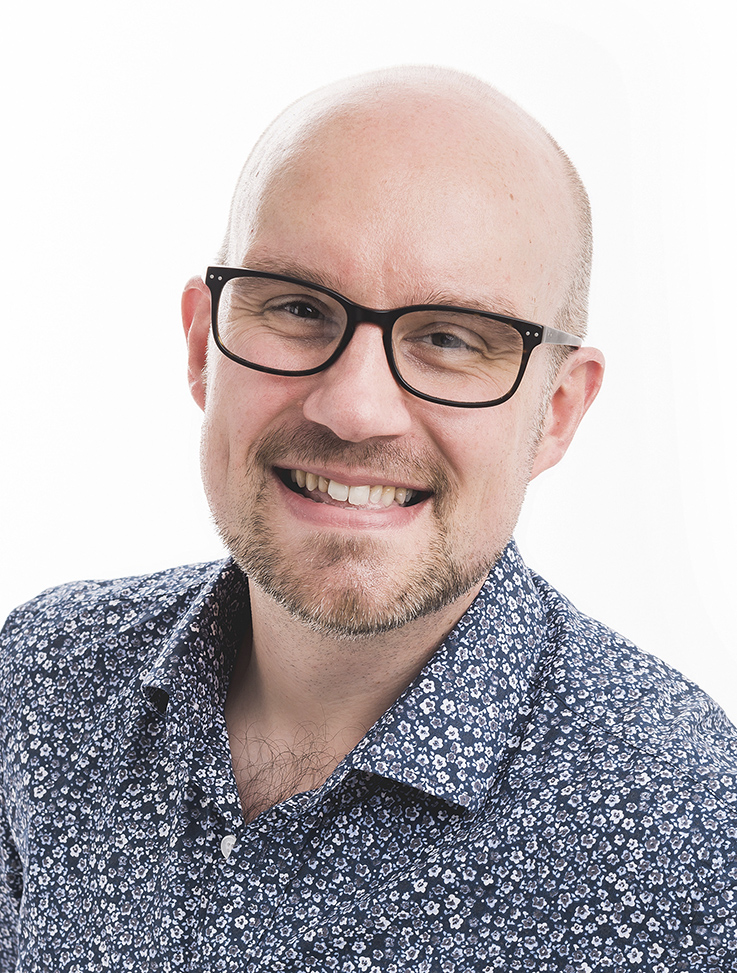Read on to discover how facing a terminal illness has given leading theatre composer Adrian Sutton a new outlook on life and work...
Who is composer Adrian Sutton?
If you’ve seen War Horse or The Curious Incident of the Dog in the Night-Time at the theatre then you’ll have heard the music of Adrian Sutton. Emerging from a career composing for adverts, Sutton found himself creatively entangled with the Morris brothers. Music for Chris Morris’s Radio 1 show Blue Jam brought the composer to the attention of director Tom Morris, who roped Sutton in to contribute to his brilliantly satirical Newsnight: The Opera in 2003, followed by the 2005 play Coram Boy. The rest is theatre history.

A terminal diagnosis and a new 'laser focus'
With a new album of Sutton’s Orchestral Works performed by the BBC Philharmonic, we’re invited to discover another side of the composer, who was diagnosed with terminal cancer in 2022. At the heart of it is a Violin Concerto written for Fenella Humphreys, something he felt he just had to deliver, as he explained to me over Zoom earlier this year.
‘I dithered about for many years, wanting to write one and never quite getting off my arse, because various other projects came into view,’ Sutton tells me. ‘Then the diagnosis happened. The thing about that – and it’s one of the things that people who are in this situation pretty much all say – is you get a massive laser focus on what it is that you should and shouldn’t be spending your time doing.’
Sutton took inspiration from Richard Bach’s cult 1970s novella Jonathan Livingston Seagull, a tale of a gull that decides it wants more from life than fishing with the flock and teaches itself to fly. It was a suprisingly spiritual lifting off point. ‘It becomes sort of a transcendental story about self-fulfillment, learning things, bettering yourself and having a fulfilling life. I’m not a religious person at all, but there are elements about it which are nourishingly spiritual.’
Adrian Sutton... 'I've still got plenty in me yet'
Such themes have undoubtedly become more important to the composer since his diagnosis, but he’s adamant that the concerto isn’t anything like a final word. ‘I’m not going to treat it as a swansong, because I feel like I’ve still got plenty in me yet,’ he says. ‘The prognosis of my condition is obviously not great, but it’s not something I’ve asked for and I’m deliberately, strategically, ignoring finding out about it.’
With an unknown amount of time to play with, then, does Sutton feel a pressure to keep creating, to keep digging deep for just one more great work?
‘There has been a little bit of tacet pressure that I’ve put on myself, and on my partner,’ he shares. ‘It’s such a tricky situation; on the one hand he’s juggling the idea that he wants all of my time, whatever is left. Yet at the same time, because he’s a fan of my music, he wants to see me produce as much as I possibly can so that there’s a legacy. And some of that has rubbed off on me, so I find myself thinking, “I really need to get this done…” But you can put too much pressure on yourself.’
'Music is a communal act, one that is central to our humanity'
One of the things he did do after the diagnosis, apart from write the concerto, was organise a London concert of his music (a catalyst for the album project), and making music with others has now become more important than ever.
‘The business of writing dots on paper for real people to play in a real context is something that has become very much another laser focus. Music is a communal act, one that nourishes us and is so central to our humanity,’ he tells me. ‘I was struck the other day by the similarity of going to a gig, or concert, and going to a kind of church. It’s this communal thing that you do, not because you know it’s good for you, like some kind of medicine, but because it’s a genuine experience.’
Adrian Sutton... 'I'm proud of War Horse'
Listeners to Sutton's new album will experience a snapshot of what has been a varied career, from a suite of music from War Horse to Short Story, a new work which he wrote in the chemo suite – ‘a very good place to get a lot of work done.’
But what does Adrian Sutton himself feel about his work when he looks back? ‘A lot of what I have done has been applied music, but it’s not any weaker for that,’ he replies. ‘I’m proud of War Horse, because it enabled me to very effectively leverage my musical voice. And I’m proud of the concerto, because it sums up who I really am, musically. I’m proud of most things that I’ve done; every composer writes some duffs, and there have been some, but theatre taught me to relax about that.’
Adrian Sutton’s new album of Orchestral Works is released on Chandos Records on 4 October.
